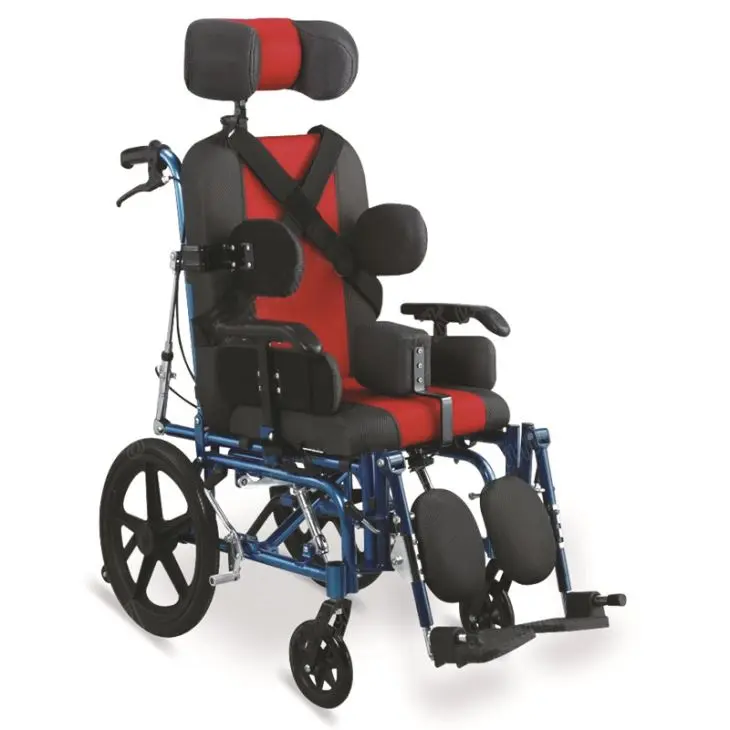Cerebral palsy is a neurological disorder that affects movement, muscle tone and coordination. It is caused by abnormal brain development or damage to the developing brain, and symptoms range from mild to severe. Depending on the severity and type of cerebral palsy, patients may face difficulty walking and may require a wheelchair to improve their independence and overall quality of life.
One of the main reasons people with cerebral palsy need a wheelchair is to overcome difficulty with movement. The disease affects muscle control, coordination and balance, making it difficult to walk or remain stable. Wheelchairs can provide a safe and effective means of travel, ensuring that people with cerebral palsy can navigate their surroundings and participate in daily activities, social activities, and educational or employment opportunities without restrictions.
The specific type of wheelchair used by a person with cerebral palsy will depend on their individual needs and abilities. Some people may need a manual wheelchair, propelled by the user’s own power. Others may benefit from electric wheelchairs with power and control functions. Electric wheelchairs enable people with severely limited mobility to move independently, allowing them to more easily explore their environment and participate in a variety of activities.
Wheelchairs designed for people with cerebral palsy often have specific features to meet the unique needs of such patients. These features include adjustable seat positions, additional padding for increased comfort, and dedicated controls for ease of use. In addition, some models may have a spatial tilt or tilt function, which can help with issues such as muscle tension and fatigue or relieve pressure sores.
In addition to aiding mobility, using a wheelchair can provide a sense of autonomy and independence for people with cerebral palsy. By enabling individuals to move freely and effectively, wheelchairs enable them to pursue their interests, participate in social activities, and cultivate relationships without relying solely on the help of others.
In conclusion, people with cerebral palsy may need a wheelchair to overcome mobility related challenges caused by the disease. From improved mobility to increased independence and quality of life, wheelchairs play a vital role in ensuring that people with cerebral palsy can fully participate in daily activities and interact with their surroundings. By acknowledging their unique needs and providing appropriate support, we can help people with cerebral palsy live full and inclusive lives.
Post time: Oct-07-2023







